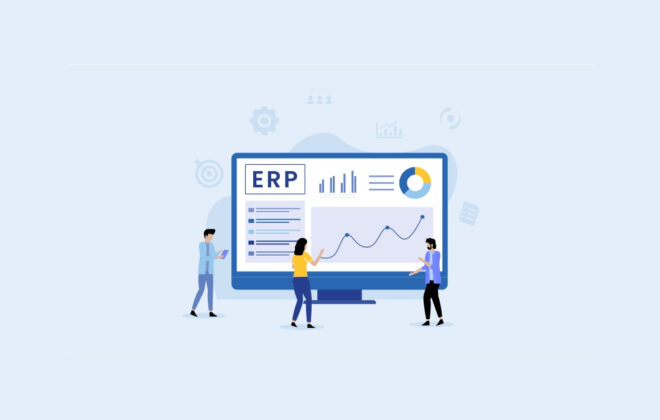Three Principles You May Forget In The Implementation Of ERP System
Principles You May Forget In The Implementation Of ERP System
Business is dynamic and the ability for one to continue operating to the foreseeable future largely depends on its responsiveness to the changing business trends. To give flexibility and convenience to consumers, it is imperative to respond to the changing technological trends in business. ERP software (or enterprise resource planning software) is a software that is designed to be used by organizations to help them in combining, organizing and maintaining a company’s data to aid the fluent functioning of the business. The basic function of ERP is to bring together the key operations of the organization which may include; manufacturing, human resource or personnel, customer relations, distribution finance, etc. into a single software system. The processes involved in the selection and implementation of ERP software system can be very complex for many businesses and project teams. However, when the right evaluation and implementation strategies are used, ERP can pull the organization back to its roots by ensuring harmony between the scattered departments through the unified software system.
 The ERP system to be installed may differ from industry to industry. That which will be suitable for the food and beverage industry would not be suitable for the pharmaceutical or cosmetic industry. Even though different businesses require different software, the challenges they face in installation are similar if not the same- from bureaucratic regulatory procedures to trace ability. There are numerous challenges associated with the adoption and implementation of ERP systems, however there are three(3) particular areas that are not normally given attention. These areas include:
The ERP system to be installed may differ from industry to industry. That which will be suitable for the food and beverage industry would not be suitable for the pharmaceutical or cosmetic industry. Even though different businesses require different software, the challenges they face in installation are similar if not the same- from bureaucratic regulatory procedures to trace ability. There are numerous challenges associated with the adoption and implementation of ERP systems, however there are three(3) particular areas that are not normally given attention. These areas include:
Advance planning
It is often said that “he who fails to plan, plans to fail”.This phrase come to the door-step of any business that is seeking to adopt ERP systems either in manufacturing, processing or whatever industry it is. Planning is an imperative principle to adhere to if one can successfully switch to the usage of ERP. It is true that if you start on a wrong note, you will end on a wrong note. If you want to manage ERP implementation make sure that you know the goal of every project and the resources that are required for operation before you start anything.
Tune your mind to success
Usually managers coil into a shelf of complacency on the assumption that the ERP is successfully installed and is running efficiently.In this way they can be taken unawares by a system failure which will leave them in jeopardy. It is important to cater for future malfunction of the system. Establish a maintenance program and create a recover plan to deal with future failures.
Treat all days alike
Many question the quality of output produced on Mondays and Fridays. This is because on Mondays, workers had just returned from the delight of the weekend and may feel that the weekend should prolong and therefore they work with reluctance. Similarly, on Fridays, the weekend aroma makes them always seeking the simple way to get the complex things done. All of these must be monitored if the ERP implementation can be successful.
ERP implementation can be very complex if taken for granted. Project managers of ERP programs must exercise every care to ensure that all the side line issues are addressed.



